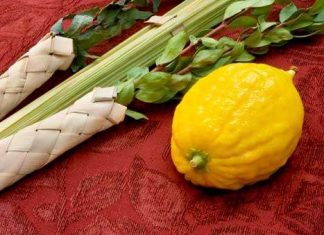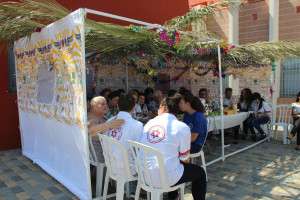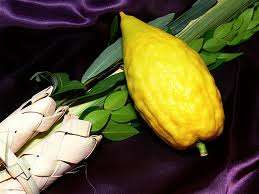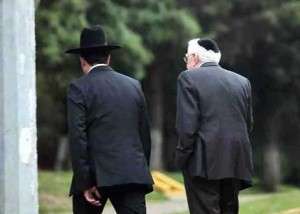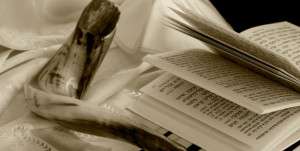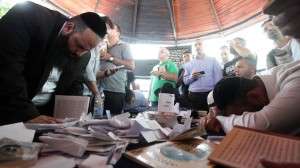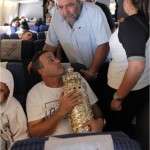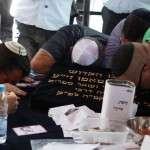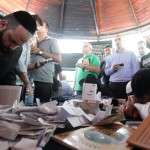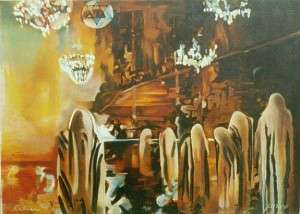The group is led by Yoshiyahu Pinto, an Orthodox rabbi, and to his followers an expert in Kabbalah, or ancient Jewish mysticism. Rabbi Papo was a leading Kabbalist in the town of Selestria in the early 19th Century and became well-known for his books on guidance to moral behaviour, which continue to be studied in the present day.
On the flight from Israel, a pilgrim holds an elaborate case containing a new Torah scroll, or the Five Books of Moses, the holiest object in Judaism. The Torah has been written by hand by a special scribe and will be completed at Rabbi Papo’s shrine, where a section related to Yom Kippur will be read aloud.
At Rabbi Papo’s grave, special penitential prayers called Selichot are recited, appealing to God for forgiveness for wrongdoing. The prayers originate from the time of the biblical King David and include those written by rabbis from around the world in the centuries which followed.
Some believe that when reading the text of forgiveness, genuine remorse is demonstrated by crying, which can help their prayers to be answered.
The tradition of visiting the graves of righteous rabbis on special occasions is very old and appears in the Talmud, a compendium of teachings and commentaries on Jewish law which was compiled about 2,000 years ago.
Visits to the grave of Rabbi Papo were renewed 11 years ago and this year some 1,500 people made the pilgrimage. Religious visitors believe that, in death, Rabbi Papo is close to God and is able to appeal to Him in their name to judge them favourably.
One of the rituals performed by visitors is to deposit a note containing personal requests, and to donate money for charity – actions which they believe will help their repentance to be accepted and to be granted a good year ahead. (Pictures and text by Noam Sharon)


